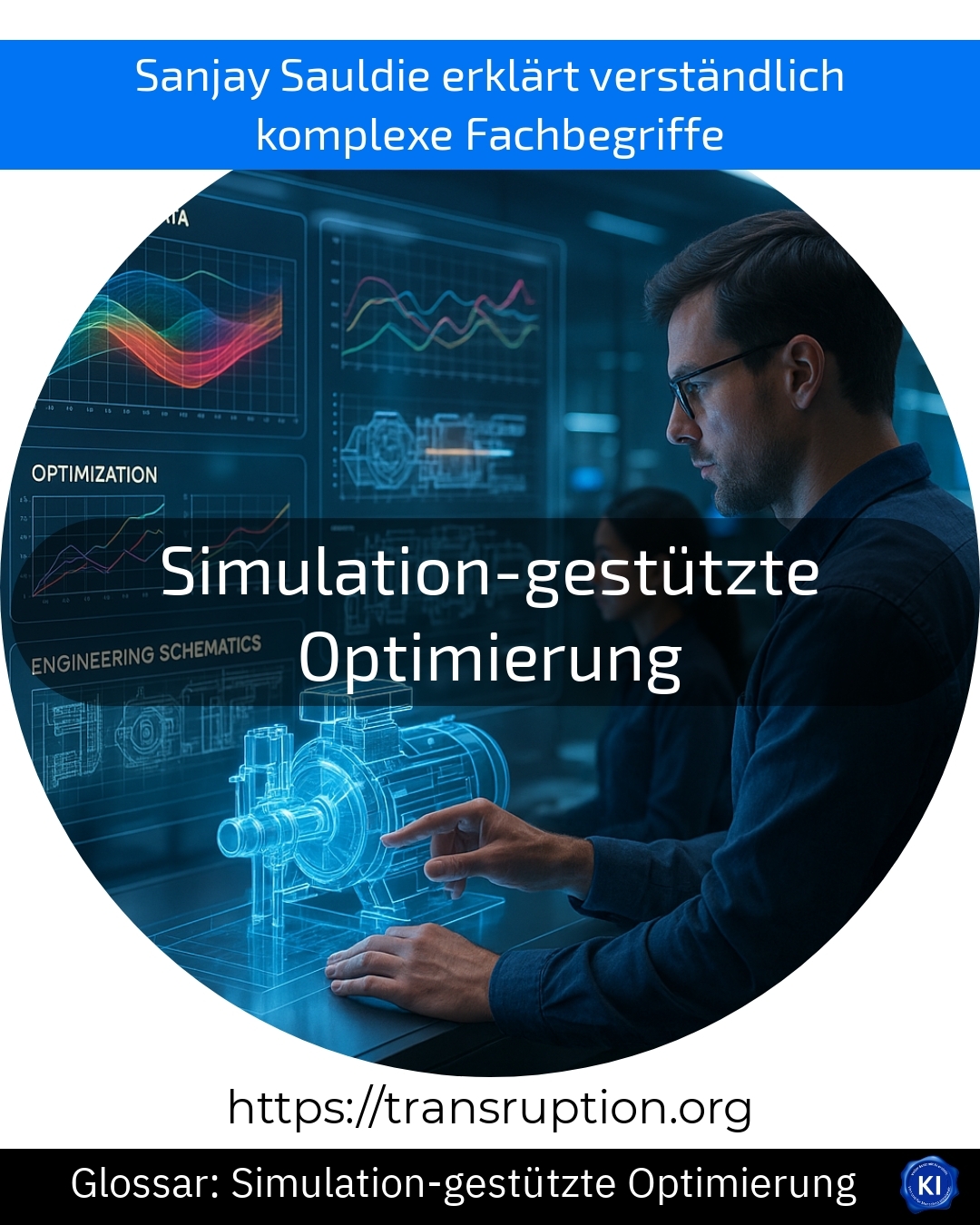Simulation-based optimisation is particularly relevant in the areas of Industry and Factory 4.0, artificial intelligence and automation. This is a modern approach in which computer models are used to improve processes or products before they are tested in the real world. This saves time, costs and resources.
Instead of carrying out "trial and error" in real operation, virtual twins of machines, production processes or even entire factories are created. Different settings or changes can then be safely tried out in the simulation. The optimum solution is found based on the results of many test runs.
A simple example: A company wants to make its production line more efficient. Simulation-supported optimisation is used to create a digital copy of the plant. In this virtual environment, an algorithm tests different ways of setting up the machines or planning the processes. The best tested variant can then be implemented in reality without risk and much more quickly.
Simulation-based optimisation helps companies to remain more competitive and avoid mistakes in advance. Especially in times of digitalisation, this method is an important building block for greater efficiency and innovation.















